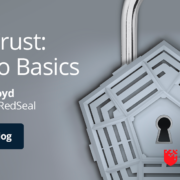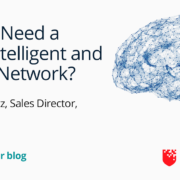The House Always Wins? Top Cybersecurity Issues Facing the Casino and Gaming Industry
Head into a casino, and you should know what you’re getting into — even if you see some success at the beginning of the night, the house always wins. It’s a truism often repeated and rarely questioned but when it comes to cybersecurity, many casino and gaming organizations aren’t coming out ahead.
In this post, we’ll dive into what sets this industry apart, tackle the top cybersecurity issues facing casino and gaming companies, and offer a solid bet to help build better security infrastructure.
Doing the Math: Why Casinos and Gaming Businesses are at Greater Risk
Gaming and casino industry companies generate more than $53 billion in revenue each year. While this is a big number, it’s nothing compared to the U.S. banking industry, which reached an estimated $4847.9 billion in 2021. And yet at 1/100 the size of their financial counterparts, casinos now face rapidly-increasing attack volumes.
In 2017, for example, a network-connected fish tank was compromised by attackers and used as the jumping-off point for lateral network movement. In 2020, the Cache Creek Casino Resort in California shut down for three weeks after a cyberattack, and in 2021 six casinos in Oklahoma were hit by ransomware.
So what’s the difference? Why are casinos and gaming companies being targeted when there are bigger fish to fry? Put simply, it’s all about the connected experience. Where banks handle confidential personal information to deliver specific financial functions, casinos collect a broader cross-section of information including credit card and income information, social security numbers, and basic tombstone data to provide the best experience for customers on-site. As a result, there’s a greater variety of data for hackers to access if they manage to breach network perimeters.
Casinos and gaming companies also have a much larger and more diverse attack surface. Where banks perform specific financial functions and have locked down access to these network connections, casinos have a host of Intenet-connected devices designed to enhance the customer experience but may also empower attacks. IoT-enabled fish tanks are one example but gaming businesses also use technologies like always-connected light and temperature sensors, IoT-enabled slot machines, and large-scale WiFi networks to keep customers coming back.
In practice, this combination of connected experience and disparate technologies creates a situation that sees IT teams grow arithmetically while attacks grow geometrically. This creates a challenge: No matter how quickly companies scale up the number of staff on their teams, attackers are ahead.
Not only are malicious actors willing to share data about what works and what doesn’t when it comes to breaching casino cybersecurity, but they’re constantly trying new approaches and techniques to streamline attack efforts. IT teams, meanwhile, don’t have the time or resources to experiment.
The Top Four Cybersecurity Issues Facing Casino and Gaming Companies
When it comes to keeping customer and business data secure, gaming and casino companies face four big issues.
- IoT Connections
While IoT devices such as connected thermostats, refrigerators, and even fish tanks are becoming commonplace, robust security remains rare. Factory firmware often contains critical vulnerabilities that aren’t easily detected or mitigated by IT staff, in turn creating security holes that are hard to see and even more difficult to eliminate. - Ransomware Attacks
Ransomware continues to plague companies; recent survey data found that 49 percent of executives and employees interviewed said their company had been the victim of ransomware attacks. This vector is especially worrisome for casinos and gaming companies given both the volume and variety of personal and financial data they collect and store. Successful encryption of data could shut companies down for days or weeks and leave them with a difficult choice: Pay up or risk massive market fallout. - Exfiltration Issues
Collected casino and gaming data is also valuable to attackers as a source of income through Dark Web sales. By quietly collecting and exfiltrating data, hackers can generate sustained profit in the background of casino operations while laying the groundwork for identity theft or credit card fraud. - Compliance Concerns
If casinos are breached, they may face compliance challenges on multiple fronts. For example, breached credit card data could lead to PCI DSS audits, and if businesses are found to be out of compliance, the results could range from substantial fines to a suspension of payment processing privileges. Compromised personal data, meanwhile, could put companies at risk of not meeting regulatory obligations under evolving privacy laws such as the California Consumer Protection Act (CCPA).
Betting on Better Security
Once attackers have access to casino networks, they’ve got options. They could encrypt data using ransomware and demand payment for release — which they may or may not provide, even if payment is made — or they could quietly exfiltrate customer data and then sell this information online. They could also simply keep quiet and conduct reconnaissance of new systems and technologies being deployed, then use this information to compromise key access points or sell it to the highest bidder.
The result? When it comes to protecting against cyberattacks, businesses are best served by stopping attacks before they happen rather than trying to pick up the pieces after the fact. For networks as complex and interconnected as those of casinos, achieving this goal demands complete visibility.
This starts with an identification of all devices across network architecture, from familiar systems such as servers and storage to staff mobile devices and IoT-connected technologies. By identifying both known and unknown devices, companies can get a picture of what their network actually looks like — rather than what they expect it to be.
RedSeal can help casinos achieve real-time visibility by creating a digital twin of existing networks, both to identify key assets and assess key risks by discovering the impact of network changes. For example, casinos could choose to run a port and protocol simulation to determine the risk of opening or closing specific ports — without actually making these changes on live networks. RedSeal can also help segregate key data storage buckets to mitigate the impact of attacks if systems are compromised.
Helping the House Win
Attackers are trying to tip the odds in their favor by compromising connected devices and leveraging unknown vulnerabilities. RedSeal can help the house come out ahead by delivering real-time visibility into casino and gaming networks that help IT teams make informed decisions and stay ahead of emerging cybersecurity challenges.
Ready to tip the odds in your favor? Start with RedSeal.










